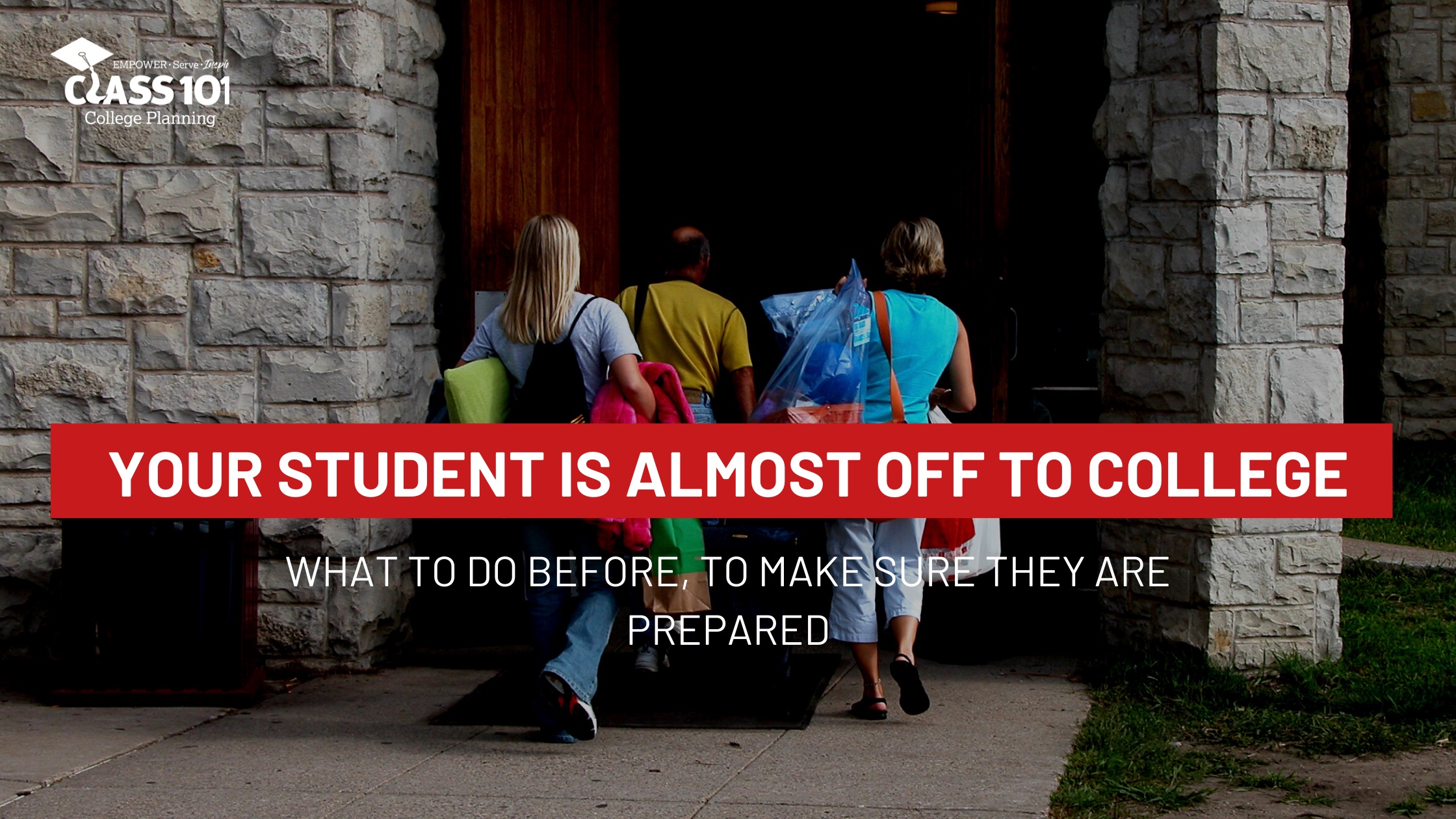June 16, 2022

It was a long process of touring campuses, emailing admissions officials, and learning about different programs. Weeks after submitting their test scores and college essays through the Common App, a letter arrives in the mail for your child. It thanks them for applying and congratulates them for being one of the students accepted for the forthcoming academic year.
This moment is one that your child will remember for a long time but your work is not over yet! There are six key steps that parents and guardians can take to help their students make the best transition to college possible.
After accepting an offer for enrollment at a college or university, the next step for many incoming students is to attend freshman orientation. These events, organized by schools over the summer, are meant to ease the transition into college. Students attend to get a sense of what life will be like in college, to familiarize themselves with faculty and other incoming students, and to see all the facilities that the campus has to offer.
Every college handles orientations differently. As CollegeRaptor describes, some break students into small, random groups while others are arranged by major or other category. Information on orientation can be sent in an offer for enrollment letter or shortly after a student enrolls. In any case, it is beneficial to read the information thoroughly and register to attend at a time and date that works with your schedule.
While most college experiences are happy and uneventful, accidents and emergencies can happen. It’s essential for students to have the resources they need to protect themselves and their belongings.
Colleges often require students to have medical insurance to protect against sickness or injury. If a student is considered their parent’s dependent, they can often stay on their parent’s insurance plan until they turn 26. If a family chooses to go this route, they should make sure to contact the enrollment office. Often, universities and colleges will automatically charge for their own medical coverage, which can be added to tuition bills and go undetected. If neither of these options are satisfactory or a family lacks insurance, they might also shop around on the Exchange for other plans.
For protecting a student’s possessions, colleges and universities often recommend renters’ insurance. College renters’ insurance can provide a way for students to protect their clothes, textbooks, electronics, and other possessions they may take with them to their apartment or dorm room. While families can often ask an insurance agent at their provider for options, many colleges and universities offer insurance themselves. You might just want to check your own insurance policy first to make sure your student’s belongings aren’t already covered.
Parents might also take this opportunity to discuss medical power of attorney, as they cease to have legal control over their children’s medical decisions once they turn eighteen. Talk to an attorney about what to do should an emergency happen at college and, if possible, have them draw up a legally binding agreement that you and your child both support.
Next, it’s important to ensure that students have access to money to buy the essentials they need to get through the year. For students attending college close to home, that can be as easy as keeping a pre-existing bank account open. For those students moving out of state, the process can be a little trickier. Families will need to find a bank near the campus their student can access.
Google can be useful here to find options, though we recommend using a large and well-established institution that has the resources to respond to a student’s specific needs. An account can usually be set up after a phone call or by visiting an accessible branch.
The summer before a student enrolls can be a good time to set expectations and boundaries for what it means to live away from home. If students and their guardians want to talk regularly, they can discuss what “regularly” means to each of them and how to best stay in touch (e.g. text, calls, email). Students and guardians can also talk about how they will handle important information given to them by the college.
In all these discussions, it is essential to treat students as adults deserving of respect and independence. As they go about this new journey in their life, be open to giving them more chances to figure things out for themselves. Acting as a “helicopter parent,” constantly present and swooping in to address problems, can not only cause family tension but also limit a student’s potential to grow.
Colleges and universities put a lot of resources into making sure their campuses are safe and secure. However, there will always be dangers and risks. These conversations about safety can be awkward, but parents and guardians should talk to their students to communicate these facts in a clear, understandable way.
Most tips are common sense. Students should know not to walk alone at night in unlit areas and, if their campus has them, how to use the emergency “blue-light” call boxes for help. If they go to a party or an event, they should know it is always okay to say “no” or speak up for a friend. They should know that drug and alcohol use can compromise a student’s ability to make good judgements.
Many of these facts are covered in the first week of college. An increasing number of campuses require students to complete a test about campus safety or to attend a lecture. Still, it is always beneficial for students to receive advice from multiple sources.
With all these responsibilities out of the way, parents and guardians can look forward to a fun part of college: Family Weekend. Offered by many colleges across the country, Family Weekend offers a chance for parents to visit the campus to check in with their students. Many colleges and universities offer activities, special dining options, and more to put their best foot forward and make a good impression on families.
Families can often find information on Family Week in the college calendar. They can also call Admissions for information on this and other opportunities.
***
The college admission process can be a busy time for families, but it doesn’t need to be a stressful one. By following these tips and scheduling a meeting with a Class 101 college advisor, parents and guardians can set their student up for success their freshman year. Sign up for a free consultation on this and other issues today by visiting the link HERE.

July 10, 2025
Summer is underway and most students are enjoying a well-deserved break from school work to pursue sports, hobbies, summer jobs, travel, and more. Still, these hot summer months should not distract from one key fact—the start of college admissions season is right around the corner. Most colleges and universities will begin accepting applicants for the […]
Read More >
May 10, 2025
As a high school student, have you ever wondered what exactly is considered a good ACT score? Are you confused about where to set your target score? Do you feel intimidated by the thought of taking the test and not knowing what score to aim for? What is a Good ACT Score? The ACT is […]
Read More >
January 1, 2025
Updated: Jan 2025 There are four sections on the ACT: English (75 question/ 45 minutes), Math (60 questions/ 60 minutes), Reading (40 questions/ 35 minutes), Science (40 questions/ 35 minutes) and then the optional writing portion. ACT Math Math is the easiest section to raise your score in. This section is the one where students […]
Read More >